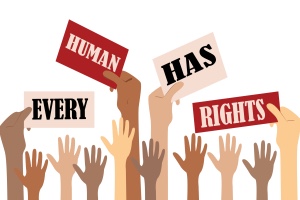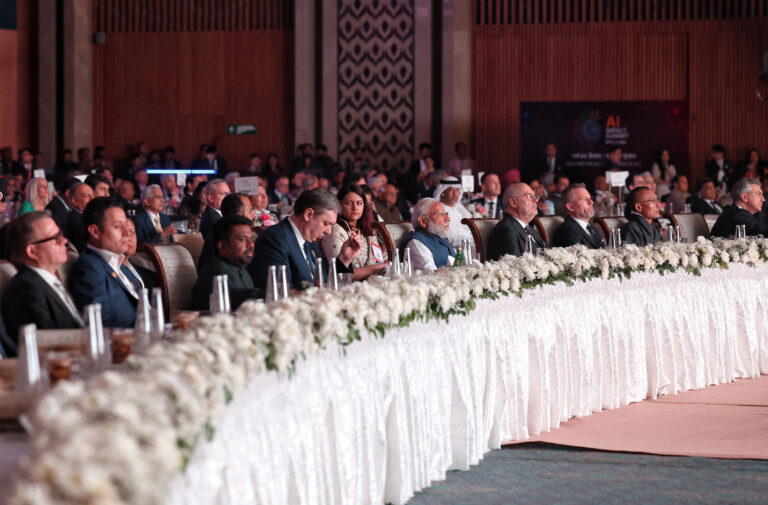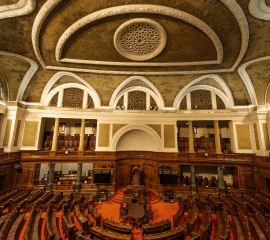
Geneva: Speakers at the special session of the Human Rights Council on Afghanistan today called for the immediate restoration of security and civil order, a return to constitutional rule and the protection and respect for civilian life, dignity, and property throughout Afghanistan. Some speakers were of the view that this Council must send a clear message that cooperation with Afghanistan was conditional on a peaceful and inclusive settlement, and respect for the fundamental rights of all Afghans. It must not turn away from the Afghan people; words of concern were not enough.
In her opening remarks, Nazhat Shameem Khan, President of the Human Rights Council, outlined the proposed extraordinary modalities for the session. She urged all participants to participate with the dignity inherent to the discussion.
Michelle Bachelet, United Nations High Commissioner for Human Rights, said there were credible reports of serious violations of international humanitarian law and human rights abuses taking place in many areas under effective Taliban control such as summary executions of civilians, restrictions on the rights of women, including their right to move freely and girls’ right to attend schools, recruitment of child soldiers, and more. Many people now feared reprisals by the Taliban against those working with the Government or the international community; people who had worked to advance human rights and justice; or those whose lifestyles and opinions were simply perceived to be opposed to the Taliban ideology.
Over the recent weeks, the Taliban had pledged to respect and protect human rights, such as women’s right to work and girls’ right to attend schools, within the Taliban’s interpretation of Islamic law. Bachelet said the onus was now fully on the Taliban to translate this commitment to reality – they must ensure fundamental human rights and the provision of public services to all.
Anita Ramasastry, Chair of the Coordination Committee of Special Procedures, stated that the actions of this Council would set the course for the future of Afghanistan, representing a test case for the United Nations Charter – urgency and moral clarity was required. Right now, the protection of vulnerable groups had to take priority. She said the situation was dire: child casualties for the first half of 2021 were the highest number ever recorded for such a period by the United Nations in Afghanistan. Thousands of families were displaced due to Taliban military campaigns. Data showed that violations of women’s rights remained central to Taliban ideology, mirroring their past practice.
Shaharzad Akbar, Chairperson of the Afghanistan Independent Human Rights Commission, said the draft resolution tabled today was a travesty. The Taliban’s current crimes were well documented – they were not isolated to the past. Afghan activists on the ground faced direct threats to their lives. They demanded better from the Council.
Millions fear for their lives, and a humanitarian crisis has been unfolding. The lives of thousands of human rights defenders, journalists, academics, professionals, and members of civil society were at risk. Women and girls had lost their basic rights. Over 4 million internally displaced people currently lived with little to no humanitarian support.
The speakers stressed each State’s responsibility to protect its population. Concern was expressed about Afghan women and girls, their rights to education, work and freedom of movement. They were vulnerable to violence and should be protected. The lives of journalists, media workers and human rights defenders were at risk, while ethnic and religious minorities lived in fear of persecution.
Some speakers expressed their support for the establishment of a fact-finding mission. They noted that there was no majority support for such an instrument and expressed hope that a Special Rapporteur with the mandate to monitor, advise and publicly report on the human rights situation in Afghanistan could be agreed. Other speakers noted that the peace process must be Afghan-led and Afghan-owned, supported by international assistance. The international community had a duty to protect the Afghan people and to avoid further suffering: all States, international agencies, and donors must mobilise urgent humanitarian support.
It was important to respect the will of Afghan people – the current task was to restore order and peace. Some speakers noted that the Taliban had repeatedly expressed their willingness to solve problems and build an inclusive government, as well as their commitment to protect women’s rights and freedom of speech. Expressing hope that the Taliban would put these commitments to practice, speakers called on them to stop all kinds of terrorist activities. Some speakers said that Western countries often imposed their own will on countries with completely different societies and cultures – this must not be repeated, there was no military solution to this situation. Imperial hubris and external military occupation protected by the shameful silence of the complicit media had directly led to the current situation, leaving a legacy of destruction and death. Other speakers expressed deep concern about attacks against civilians and civilian infrastructure that may amount to war crimes, noting that Taliban promises were already being broken. It was important to tackle the negative spill over in the wider region, as speakers called for bilateral and multilateral support for Afghanistan’s neighbours.
The future development of Afghanistan must preserve the tremendous gains made by Afghan women and girls, ensuring their full and equal participation. Some speakers noted that the Taliban had already introduced order, confirmed security guarantees for foreign missions, and introduced an amnesty for Governmental officials and citizens who had worked for the United States and the North Atlantic Treaty Organization forces. Other speakers said that countries must open their borders to welcome Afghan refugees fleeing the crisis, provide visas and waivers, and ensure that Afghans were able to leave the country in a safe and orderly manner. It was regrettable that the tabled resolution would not establish an independent mechanism to monitor and report, gather evidence of violations and abuses, and advance accountability.
Speaking in the urgent debate were Gašper Dovžan, State Secretary at the Ministry of Foreign Affairs of Slovenia; Jeppe Kofod, Minister for Foreign Affairs of Denmark; Lord Ahmad, Minister for South Asia and the Commonwealth of the United Kingdom; Benedetto Della Vedova, Undersecretary of State at the Ministry of Foreign Affairs and International Cooperation of Italy; Jose Manuel Albares, Minister for Foreign Affairs of Spain; Marise Payne, Minister for Foreign Affairs of Australia; and Uzra Zeya, Under Secretary of State for Civilian Security, Democracy, and Human Rights of the United States.
Also taking the floor were Pakistan on behalf of the Organization of Islamic Cooperation, Bahrain on behalf of the Gulf Cooperation Council, China, Netherlands, Libya, Uruguay, Argentina, Czech Republic, Austria, Germany, India, Republic of Korea, Venezuela, Indonesia, Bangladesh, Nepal, Russian Federation, Brazil, Bolivia, Bulgaria, Namibia, Poland, Mexico, France, Ukraine, Philippines, Cuba, Japan, Pakistan, Chile on behalf of a group of countries, Spain on behalf of a group of countries, Qatar, Canada, Costa Rica, Switzerland, Portugal, Cyprus, Saudi Arabia, Liechtenstein, Belgium, Albania, Finland, Luxembourg, Malaysia, Peru, Ireland, Malta, Greece, Turkey, Colombia, Sovereign Order of Malta, Holy See, New Zealand, Iran, Paraguay, Viet Nam, Israel, Croatia, United Nations Population Fund, Kazakhstan, Egypt, Kyrgyzstan, Botswana, Ecuador and Tajikistan.
– global bihari bureau





